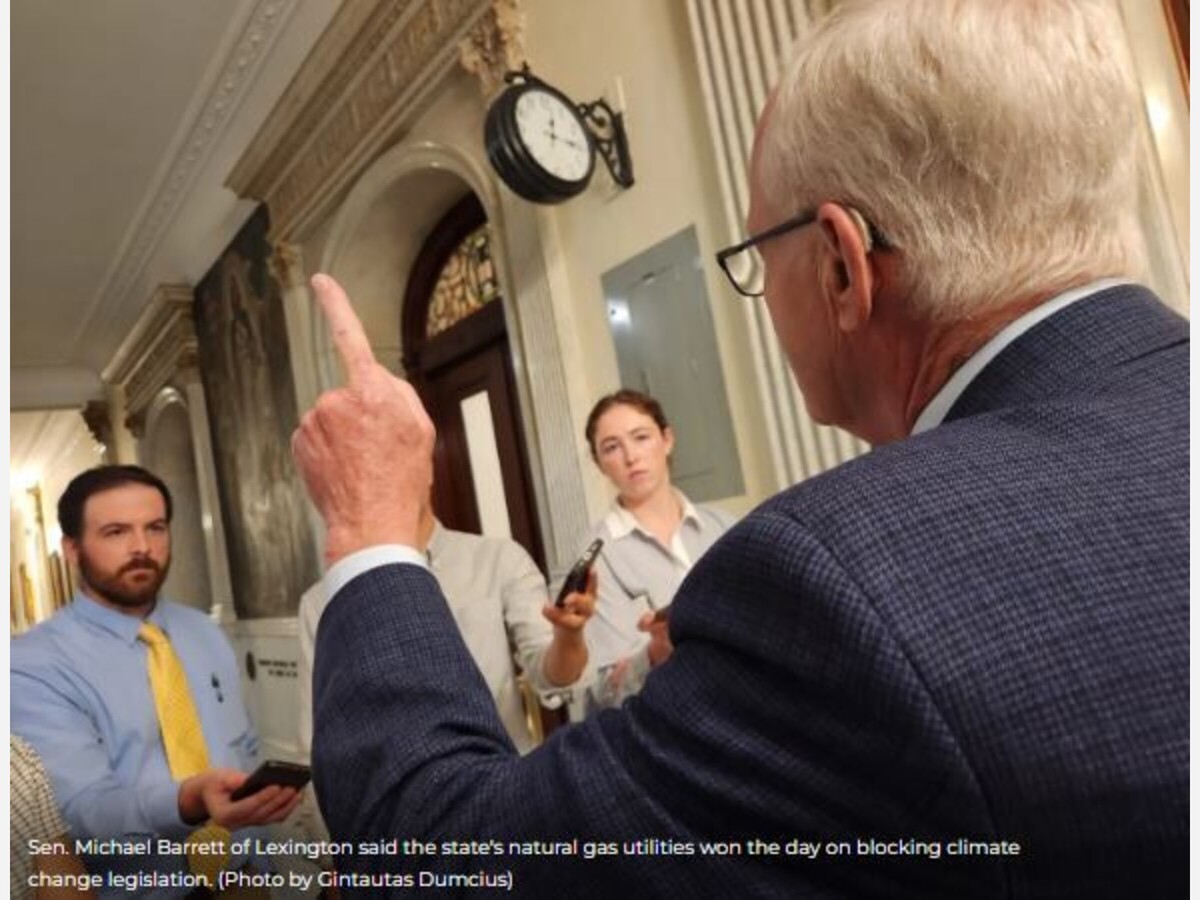Image

by Bruce Mohl and Gintautas Dumcius, CommonWealth Beacon
August 1, 2024
HIGH PRIORITY climate legislation fell by the wayside early Thursday morning when House and Senate negotiators refused to budge, a stalemate that could have far-reaching consequences for the state’s effort to reach its emission targets.
There was little dispute among the two sides on the central focus of the legislation – changes in state law that would speed up the process for siting and permitting energy infrastructure across the state. The changes are considered essential if the state is going deliver more clean energy to customers across the state.
The House was content with a bill that did the siting and permitting changes and little else, but the Senate had additional priorities, including language that would begin to rein in the natural gas industry, eliminate the retail electricity industry, and overhaul the way clean energy is procured.
Those three additional Senate priorities stirred strong opposition from the state’s utilities, retail electricity suppliers, and offshore wind developers. The House sided with the three industries on each of those issues.
Sen. Michael Barrett of Lexington, the lead Senate negotiator, placed most of the blame for the failure to reach a compromise on the state’s natural gas utilities. “Tonight and this week the utilities have won,” he said.
Rep. Jeffrey Roy of Franklin, the lead House negotiator, blamed Barrett and the Senate for the failure to reach an agreement. “Siting and permitting was the major focus of the bill and the Senate just wanted too much beyond that,” he said.
One major sticking point was the Senate focus on reining in the natural gas industry, primarily by tweaking language in existing law that governs how leaky natural gas pipes are replaced. The current law requires full replacement of pipes but the Senate language would have required natural gas utilities and the regulators who oversee them to also consider more simple repairs or just retiring the pipes all together.
Barrett said reducing the size of natural gas bills was the goal of the language to help consumers cope with an expected rise in electricity prices as more and more fossil fuels are displaced by electricity.
He also said eliminating the retail electricity industry would lead to savings for the poor customers the companies prey on. “They’re ripping off people at an extraordinary rate,” Barrett said of the companies. “It doesn’t bubble up much in this building because we tend to be middle class folks, but it is an outrage what’s happening in that marketplace.”
Barrett said top officials in the Healey administration, including the governor herself, were active in the negotiations between the House and Senate, crafting compromise language on the natural gas and retail electricity issues. The fact that Healey was willing to compromise on abolishing the retail electricity industry is interesting because Healey, when she was the state’s attorney general, generated reports that said the industry was ripping customers off and should be shut down.
At some point Wednesday night Healey apparently decided the two sides would not compromise on the various Senate issues and urged the two sides to approve the siting and permitting legislation.
“She decided the obstacles could not be overcome, and the obstacles she was encountering were not in the Senate,” Barrett said. “So at some point she gave up the game and decided she would take anything that the Legislature would give her. I understand her frustration, but the amount of money that’s at stake for poor families and then for middle class families who pay electric bills is so substantial that you can’t afford to be thwarted by the utilities.”
Roy said everyone had agreed that the changes in the siting and permitting laws were the top priority. “This is not an issue that can wait until 2025,” he said.
In the past, the House has often been willing to walk away from the table if the Senate refused to compromise, a tactic that often prompted the Senate to back down. But on Wednesday night and into Thursday morning, neither side blinked on climate change legislation.
Barrett said he didn’t think Senate President Karen Spilka would alter her stand. “There’s a lot of pressure on all of us, but I don’t see her blinking,” he said.
This article first appeared on CommonWealth Beacon and is republished here under a Creative Commons license.
